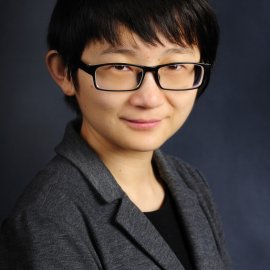Religion and Culture, Virginia Tech

Octobre 2020 à Juin 2021
Zhange Ni received her Ph.D. in Religion and Literature from the University of Chicago Divinity School (2009), and worked as a research associate and visiting assistant professor at the “Women’s Studies in Religion” Program at Harvard Divinity School (2010-2011). She is currently an associate professor at the Department of Religion and Culture, Virginia Tech. Her first book The Pagan Writes Back: When World Religion Meets World Literature (2015) proposes “pagan criticism,” a new reading strategy that attends to the historical complexities and contingencies in literary texts and challenges both Christian and secularist assumptions regarding aesthetics and hermeneutics. She has written articles on secularism and religion-making in twentieth-century China on the one hand, religion and contemporary popular literature in the Euro-American West on the other. At Nantes IAS, she will draft her second book manuscript The Cult of Fiction in the Age of the Internet: Chinese Religion, Online Fantasy, and Adventures beyond Global Capitalism. In addition, Ni is a writer of creative works in China, having published three books of poetry, three essay collections, and one novel.
"The Cult of Fiction in the Age of the Internet: Chinese Religion, Online Fantasy, and Adventures beyond Global Capitalism".
In this project, Ni studies internet-based fantasy novels in twenty-first-century China. She define fantasy as a branch of imaginative literature that reinvents magic/superstition, that is, “false,” “irrational” ideas and practices that are rooted in folk traditions around the world and stand in opposition to modern science and the liberal model of religion as interiorized, privatized, and depoliticized piety. In the wake of the translation of the modern Western discourses of science, religion, and superstition, Chinese fantasy first emerged in the form of martial arts fiction in the early twentieth century and was then suppressed by the anti-superstitious nation-state. In the late twentieth and early twenty-first centuries, Chinese fantasy has reemerged with a vengeance, thanks to the revival of Chinese religions, including what was formerly labelled superstitious, and the development of new media such as film, television, video games, and the internet. Among the vast ocean of fantasy novels, she singles out three subgenres to conduct textual analysis--xiuzhen (immortality cultivation), daomu (tomb-robbing), and danmei (homoerotic romance)—and argues that they engage with the messy reality of contemporary China and exemplify the postsocialist generation’s desire to orient themselves within the labyrinth of global capitalism and to quest for alternative imaginaries beyond the dominant order.